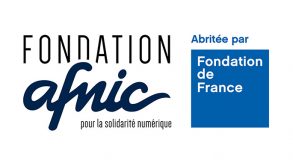I attended the NETmundial conference (www.netmundial.br) which was held in São Paulo on 23 and 24 April and concluded with the adoption of the “São Paulo Multi-stakeholder Statement” (http://netmundial.br/netmundial-multistakeholder-statement/). With hindsight, these are the lessons I learnt from the conference.
Two Highlights
There were two highlights: the adoption of the statement of course, but especially the speech filled with the power, enthusiasm and spontaneity of Nnenna Nwakanma on behalf of civil society. Her flash of optimism and willpower enlightened a very long opening ceremony. I heartily recommend you to listen to her speech: you will understand the contribution of the model on which this conference was based, and how it differs from regular multi-stakeholder meetings. Her speech certainly set the tone!
The Key Points in the Statement
First, given the origin of the conference, closely connected to the revelation by Edward Snowden of the existence of mass surveillance programs of communications, the topic was eagerly expected. The statement, although one of principle, adopted a tone of unusual firmness (even the United States did not object!) in asserting the right to privacy, and calling on States and private organizations (i.e. also Google or Apple) to “review their procedures.”
With regard to net neutrality, if the result of the conference was a mitigated one, despite strong pressure from Brazil on this issue, as far as I am concerned the glass was half full. Certainly, there was no statement of principle on net neutrality, but we know the degree to which even the definition of neutrality is subject to debate. On the other hand, it was recorded for the first time that this issue merits more extensive international discussions and must not merely be the continuation of national or regional discussions. This is extremely important because the existence of differing frameworks from one country to the next could ultimately lead to a form of fragmentation without being referred to as such.
In addition, the São Paulo statement adopted a concept that is dear to us at Afnic: that of permissionless innovation. As explained by the technical director of the ISOC (http://www.internetsociety.org/blog/tech-matters/2014/04/permissionless-innovation-openness-not-anarchy), the objective is to be able to launch a new service on the Internet without first contracting with each telecom operator in the target country/countries, or with search engines and other platforms. This is one of the major issues in the debate about net neutrality. Some of the stakeholders sought to oppose that principle in São Paulo, fortunately without success.
Finally, with regard to the most institutional subjects, even before starting the conference had achieved an excellent result with the announcement that the U.S. Government would withdraw from its role as oversight of technical resources such as the root zone for domain names (http://www.ntia.doc.gov/press-release/2014/ntia-announces-intent-transition-key-internet-domain-name-functions). It also called on the Internet Governance Forum to implement measures so that it is not merely a forum for discussion without any conclusions. By 2015, the IGF should be able to make recommendations, and make progress specifically on issues such as net neutrality.
A compromise not unanimously approved
Of course the São Paulo statement failed in some respects. For example, it did not raise existing ambiguities of major impact concerning the roles of the various stakeholders, or indeed concerning the multi-stakeholder model in itself, such as how it works, under what circumstances it is legitimate, or how it should integrate the role of governments.
These reasons underlie the rejection of the statement by Russia and Cuba, and the prudent abstention by India.
At the other end of the spectrum, for certain groups from civil society, the text does not go far enough in denouncing mass surveillance or, as noted above, on Net neutrality. We must also recognize that despite significant improvements during the conference, the roadmap is still relatively abstract. There remains a great deal of work to be done before the principles laid down at the conference are put into practice.
The influence NETmundial will have on forthcoming Internet governance deadlines
NETmundial was a striking illustration of the changes in the balance of power in the governance of the Internet, in an environment now deeply marked by the revelations made by Edward Snowden. First of all, the host country, Brazil, now plays a leading role on this issue, combining a national model, the Marco Civil and outstanding international achievements. In recent months the United States have lost their moral authority on these discussions; Brazil has taken over the leadership in defending digital liberties!
Icann also gained an invaluable victory, which it won on two levels: first, it acted as the co-organizer of a world summit meeting that has attracted a large number of ministers, which underpins its search to be recognized as having the status of an international organization; on other hand, the success of the conference will be valuable in defending the relevance of its own multi-stakeholder model. However, I note with satisfaction that the São Paulo statement places very strong pressure on the organization to improve its “accountability.” Fadi Chehade cannot rest on his laurels.
Finally, and undoubtedly the most important result of all, the São Paulo statement succeeded in resuming the dialogue that became tense in Dubai in 2012 around the issue of international telecommunications regulations, resulting in a split on the international scene between two blocks, that of the signatories and that of the non-signatories. Western countries have now moved to the side of the signatories and contributors and are no longer on the side of the opponents. In addition, their camp has expanded with a major ally, Brazil.
Another advantage for the next deadlines, the statement is the first international instrument of such a scale, asserting fundamental principles, since the World Summit on the Information Society in 2005. It (finally!) offers alternatives for high-level discussions to the never-ending, convoluted sentences of the WSIS. This means we can approach the forthcoming deadlines from a better position.
Tangible impacts for Internet users
The São Paulo statement will not change the face of the world, or even that of the Internet! The specific interest of discussions about governance is that they address topics about principles, the balance of power and control of the risks involved. To draw a parallel with the world of business, no press conference by Steve Jobs ever addressed the governance of Apple! That parallel shows us, however, that governance is one of the keys to the sustainable development of an organization, and this is the same challenge for the conference: to create the conditions so that the Internet remains the formidable vector it can be for freedom, growth and communication, and serve people, as was so wonderfully well described by Nnenna Nwakanma in São Paulo.




